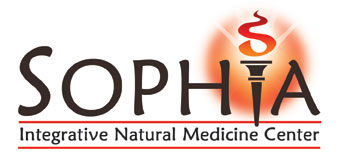After spending some time in the mountains last week, I returned to my office with vigor and a new perspective. It was interesting to look at the same common attitudes with a new lens. It is interesting to see that in spite of the extensive research on complementary/alternative medicine, there are still negative attitudes. After decades of hearing from patients, here is what I find to be the most common reasons someone will dismiss natural medicine:
- Cognitive dissonance-According to cognitive dissonance theory, there is a tendency for individuals to seek consistency among their cognitions (i.e., beliefs, opinions). When there is an inconsistency between attitudes or behaviors (dissonance), something must change to eliminate the dissonance. The biggest cognitive dissonance I hear is that there is no research on techniques like acupuncture, Nutraceuticals supplements, etc. This is just not true. There are literally dozens of peer-reviewed science journals on nutritional and supplementation such as The American Journal of Clinical Nutrition, Journal of Nutrition and Food Science, Journal of Nutritional Science. There are over 14,000 research siting’s on acupuncture at the National Library of Medicine. Additionally, Switzerland has just voted to mandate alternative medicine as part of its national health insurance program. It was approved after extensive review of the efficacy and safety of most alternative medicine systems.
- Misunderstanding in how our body functions (or inability to acknowledge that) this relates specifically to the expectation of how long it may take for the body to heal or maintain health. As much as we want to separate ourselves from nature, we cannot. Modern medical practice has accustomed people to immediate relief. But, medical drugs often treat the symptom, not the cause. And while in life threatening conditions, it is good to have an immediate response, it is not the norm for chronic progressive functional illnesses such as chronic Lyme or arthritis or heart disease. I like to use the analogy of a garden. If you want it to grow faster, you can’t just flood it with more water. You provide the proper ingredients for growth: water, sunlight, soil, and then nature will do the rest.
- Distrust of something unknown or foreign– there is a common distrust of that which is foreign or new. And that can also contribute to the cognitive dissonance that you can experience. Arthur Schopenhauer stated that all truth passes through three stages. First, it is ridiculed. Second, it is violently opposed. Third, it is accepted as being self-evident. Never is that more apparent in techniques such as acupuncture, which for decades was considered “quackery” and acupuncturists were arrested for “practicing medicine without a license” until it has now been accepted by such esteemed institutions as Sloane-Kettering Cancer Center or Walter Reed Army Hospital. In fact, change is difficult in medicine and takes a long time. Ignaz Semmelweis in 1846, before germ theory was discovered, claimed that hand-washing saved lives in hospitals. What Semmelweis had discovered is something that still holds true today: Hand-washing is one of the most important tools in public health. You’d think everyone would be thrilled to practice this easy method of stemming diseases and causing unnecessary deaths. For one thing, doctors were upset because the Semmelweis’ hypothesis made it look like they were the ones giving childbed fever to women at the time. However, the statistics today, found that compliance with hand-washing in hospitals is only around 40%!
So you have a choice; wait till the public accepts natural medicine and all of its value to creating health or do the following:
- Allow your view to change.
- Understand how your body functions naturally and get it right.
- AND do your homework, use logic and trust that you can improve your health with the oldest medical systems in the world.
Dr. Ken Hoffman, DACM, L.Ac., Medical Director
SOPHIA Natural Medicine Center
